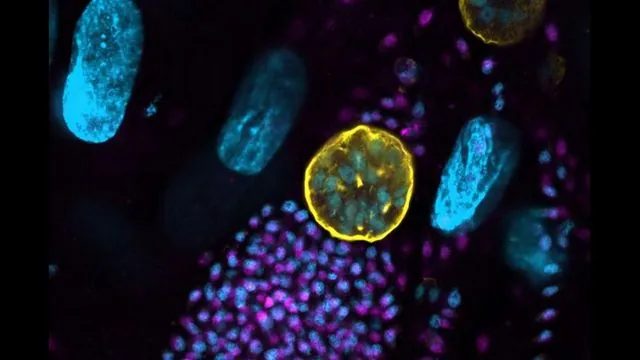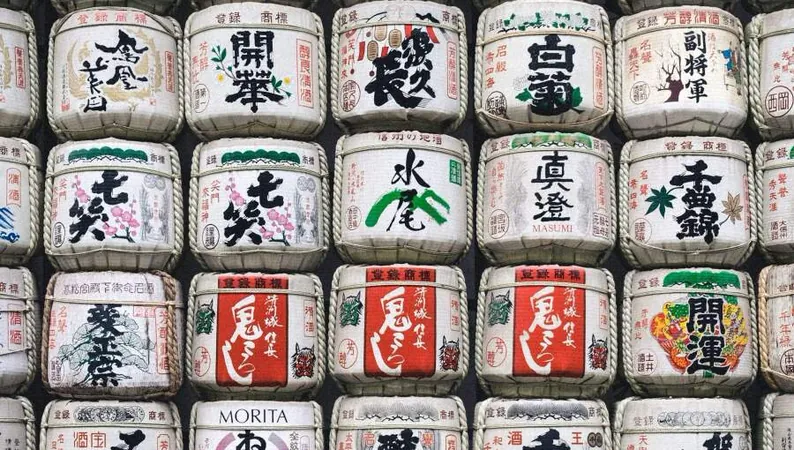
How T. gondii Outsmarted Treatments by Mimicking Viruses: A Game-Changer in Parasitology?
2024-12-10
Author: Rajesh
Groundbreaking Study Unveils New Survival Mechanism
A groundbreaking study from researchers at Indiana University School of Medicine has unveiled a fascinating mechanism by which the Toxoplasma gondii parasite can evade standard drug treatments by mimicking viral processes. This important research was recently published in the distinguished Journal of Biological Chemistry, garnering special recognition for its significant implications.
Understanding Toxoplasma gondii
Toxoplasma gondii is a single-celled parasite often contracted through contact with cat feces, consumption of unwashed fruits and vegetables, or undercooked meat. Alarmingly, it is estimated that up to one-third of the Earth's population has been infected. Though in most cases this leads to mild illness, the parasite can persist by entering a dormant state, forming cysts throughout various organs, including the brain.
The Danger of Cysts
Interestingly, studies have linked Toxoplasma cysts to behavioral changes and severe neurological disorders, such as schizophrenia. The real danger emerges when these cysts reactivate due to a weakened immune system, potentially leading to life-threatening damage to vital organs. While several medications help manage toxoplasmosis, curing the infection remains elusive. Increased knowledge of the cyst formation process could pave the way for innovative treatments.
Research Insights
The collaborative efforts of IU School of Medicine Showalter Professors Bill Sullivan and Ronald C. Wek have revealed that Toxoplasma alters its protein production when transitioning into cysts. This alteration in protein synthesis is orchestrated through messenger RNAs (mRNAs), which serve as templates for protein creation.
Bill Sullivan emphasized that while mRNAs are present in cells, they aren’t always translated into proteins. “What’s significant is that Toxoplasma modulates which mRNAs are translated into proteins during cyst formation,” he explained.
Lead Author Analysis
Lead author Vishakha Dey, a postdoctoral fellow in the Sullivan lab, conducted an in-depth analysis of the leader sequences in two specific genes, BFD1 and BFD2. These sequences are crucial for cyst formation.
Dey noted that mRNAs encompass a structural element known as a cap, which is integral for ribosomes—the cell’s protein-making machinery—to locate the starting point for translation. Surprisingly, the research found that the production of BFD1 deviates from this norm; it relies on BFD2 to bind to specific spots within the BFD1 leader sequence for its translation.
Cap-Independent Translation
Sullivan called this phenomenon "cap-independent translation," which is typically associated with viral organisms rather than those like Toxoplasma that share a cellular structure similar to humans. “The discovery of cap-independent translation in such a parasite is perplexing and illuminating,” Sullivan remarked. “This ancient protein production system opens up exciting avenues for targeting unique drug developments since these processes are not found in human cells.”
Broader Implications
The Journal of Biological Chemistry selected this study as an "Editor’s Pick," underscoring its exceptional quality and relevance to a wide audience. George N. DeMartino, associate editor of the journal, emphasized the broader implications of this finding, stating, “This study not only elucidates how Toxoplasma can thrive under stress but also suggests that similar mechanisms could affect cancer, highlighting potential therapeutic targets across various human diseases.”
Conclusion
As scientists delve deeper into the complex life of Toxoplasma gondii, this latest research could represent a crucial turning point in our approach to treating parasitic infections—possibly transforming our understanding of both parasitology and cellular function.
Reference
Dey V, Holmes MJ, Bastos MS, Wek RC, Sullivan WJ. Cap-independent translation directs stress-induced differentiation of the protozoan parasite Toxoplasma gondii. J Biol Chem. 2024:107979. DOI: 10.1016/j.jbc.2024.107979



 Brasil (PT)
Brasil (PT)
 Canada (EN)
Canada (EN)
 Chile (ES)
Chile (ES)
 España (ES)
España (ES)
 France (FR)
France (FR)
 Hong Kong (EN)
Hong Kong (EN)
 Italia (IT)
Italia (IT)
 日本 (JA)
日本 (JA)
 Magyarország (HU)
Magyarország (HU)
 Norge (NO)
Norge (NO)
 Polska (PL)
Polska (PL)
 Schweiz (DE)
Schweiz (DE)
 Singapore (EN)
Singapore (EN)
 Sverige (SV)
Sverige (SV)
 Suomi (FI)
Suomi (FI)
 Türkiye (TR)
Türkiye (TR)